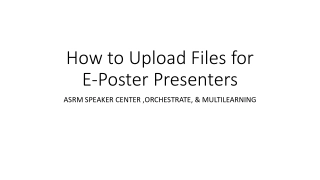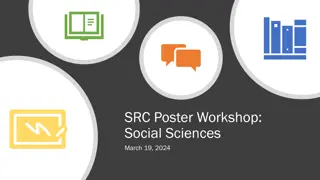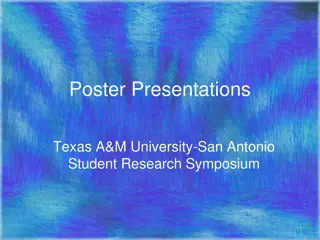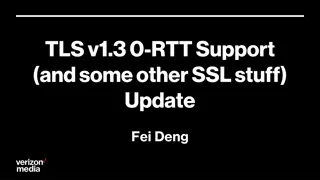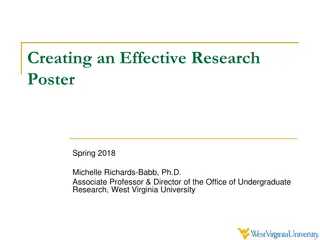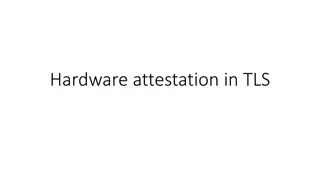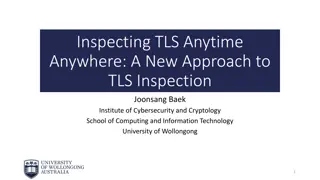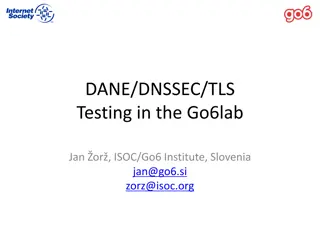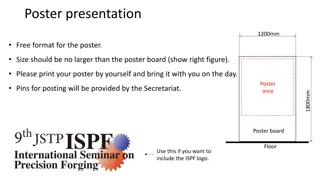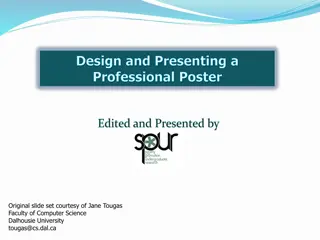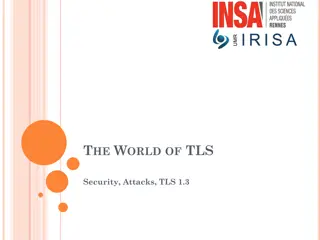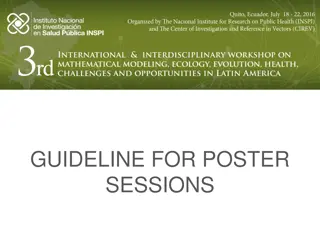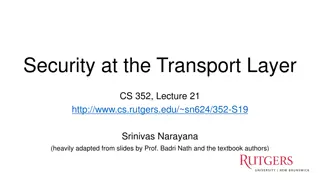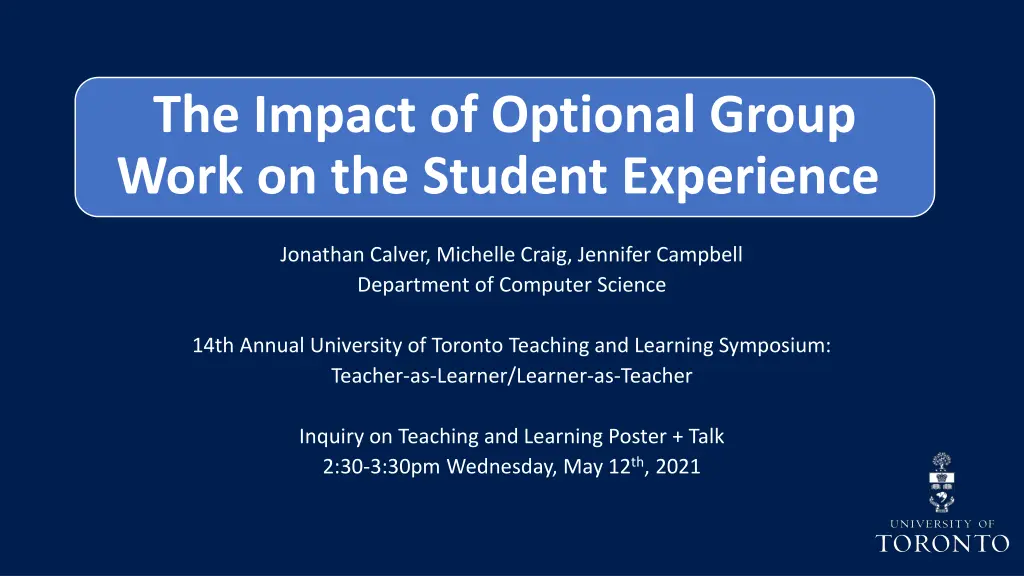
Impact of Optional Group Work on Student Experience in Computer Science Courses
Explore the research on the impact of optional group work on undergraduate students taking Computer Science theory courses at the University of Toronto. Preliminary results indicate that students working in pairs on assignments scored better and were more satisfied with their answers compared to working individually. This study provides insights into the benefits of group work in enhancing student learning outcomes and satisfaction.
Download Presentation

Please find below an Image/Link to download the presentation.
The content on the website is provided AS IS for your information and personal use only. It may not be sold, licensed, or shared on other websites without obtaining consent from the author. If you encounter any issues during the download, it is possible that the publisher has removed the file from their server.
You are allowed to download the files provided on this website for personal or commercial use, subject to the condition that they are used lawfully. All files are the property of their respective owners.
The content on the website is provided AS IS for your information and personal use only. It may not be sold, licensed, or shared on other websites without obtaining consent from the author.
E N D
Presentation Transcript
The Impact of Optional Group Work on the Student Experience Jonathan Calver, Michelle Craig, Jennifer Campbell Department of Computer Science 14th Annual University of Toronto Teaching and Learning Symposium: Teacher-as-Learner/Learner-as-Teacher Inquiry on Teaching and Learning Poster + Talk 2:30-3:30pm Wednesday, May 12th, 2021
Research Question Research Question How does optional group work impact students? What is the impact on their grades? What are the students perceptions?
Our Study Our Study Data from 1354 undergraduate students taking CS theory courses in Winter 2021: 832 in CSC165 and 522 in CSC263 Grade breakdown by question on assessments and prerequisite course grades. Survey + group information for each assignment. Groups Surveys Grades
Six Preliminary Results for CSC263 Six Preliminary Results for CSC263 1. Students work in groups to manage their workload. 75% felt encouraged to work in a group because of their overall workload
Six Preliminary Results for CSC263 Six Preliminary Results for CSC263 2. Students who worked in pairs on assignments scored better on assignments and about the same on tests compared to those who worked individually on assignments. Group Mean Individual Mean Assessment P-value Test 54.6% 52.2% 0.14 Assignment 84.4% 74% 7e-9
Six Preliminary Results for CSC263 Six Preliminary Results for CSC263 3. Students working in pairs were more satisfied with their answers on assignment questions than individuals.
Six Preliminary Results for CSC263 Six Preliminary Results for CSC263 4. Students recognize that working in groups on problem sets can raise their grades. 66% agree that students in groups achieve higher assignmentgrades. 39%agree that students in groups achieve higher overall course grades.
Six Preliminary Results for CSC263 Six Preliminary Results for CSC263 5. Students working alone are 2.5 times as likely to drop. Group Drop Rate Non-Group Drop Rate 2% 5%
Six Preliminary Results for CSC263 Six Preliminary Results for CSC263 6. Groups splitting the work can lead to worse performance on related test questions.
Discussion (1 of 2) Discussion (1 of 2) How has online learning impacted group formation? Are students who don't know anyone at a disadvantage? How can we help students find compatible groupmates?
Discussion (2 of 2) Discussion (2 of 2) Do we need to revisit why we give students the option to work in groups? What is the impact of groups on grades used for program admission? Any thoughts? (general discussion is next)
Summary Summary Research Question: How does optional group work impact students? Methods: Survey of students crossed with grades on assessments Some Preliminary Results: Students choosing to be in groups tend to get higher grades overall and are less likely to drop Analysis of the data we have collected is ongoing ideas welcome!
Thanks for Listening Thanks for Listening Additional Information about the data collected + results: www.cs.toronto.edu/~calver/igg.html Questions or comments? (Will switch to a copy of the poster shortly) Contact: calver@cs.toronto.edu
The Impact of Optional Group Work on the Student Experience Jonathan Calver, Michelle Craig, Jennifer Campbell Department of Computer Science Research Question Six Preliminary Results for CSC263 Discussion 75%felt encouraged to work in a group because of their overall workload How has online learning impacted group formation? CS education has widely accepted pair programming. Students work in groups to manage their workload. What is the impact of groups on grades used for program admission? What about group work in theory courses? AssessmentGroup Individual Mean 52.2% 74% P-value Mean 54.6% Group members scored better on assignments and about the same on tests. The CS department has adopted optional group work in two of its 1st and 2ndyear intro theory courses. Test 0.14 7e-9 Assignment 84.4% Are students who don't know anyone at a disadvantage? Group members were more satisfied with their answers than individuals. Are we helping or hurting students by giving them the option to work in groups on assignments? Methods / Data Students recognize that working in groups can raise their grades. 66%agree that students in groups achieve higher assignment grades. 39%agree that students in groups achieve higher overall course grades. How can we help students find compatible groupmates? Grades Surveys Groups Students working alone are 2.5 times as likely to drop. Data from 1354 undergraduate students: 832 CSC165 + 522 CSC263 Group Drop Rate 2% Non-Group Drop Rate 5% Do we need to revisit why we give students the option to work in a group? Grade breakdown by question on assessments and prerequisite course grades. Groups splitting the work can lead to worse performance on related test questions. Acknowledgements Special thanks to Maryam Majedi for advice on the poster design Survey + group information for each assignment. Additional results will appear at: www.cs.toronto.edu/~calver/igg.html Project contact: calver@cs.toronto.edu
Some Discussion Points (only if needed) Some Discussion Points (only if needed) Survey done on an individual basis, so how best to handle inconsistent reporting by group members? E.g. all members report they did more work than the others Can grades in pre-requisite courses help us control for the quality of students? Do weaker or stronger students benefit more from groups? What strategies have others used to help facilitate (optional) group formation? Are the TA hours saved by grading fewer assignments being put to good use? Could the same number of graded assignments be supported with current TA hours if they were done individually?
Word Cloud (what influenced you to work alone) Word Cloud ( what influenced you to work alone )
Word Cloud (what influenced you to work in a group) Word Cloud ( what influenced you to work in a group )
Blank Slide Blank Slide

